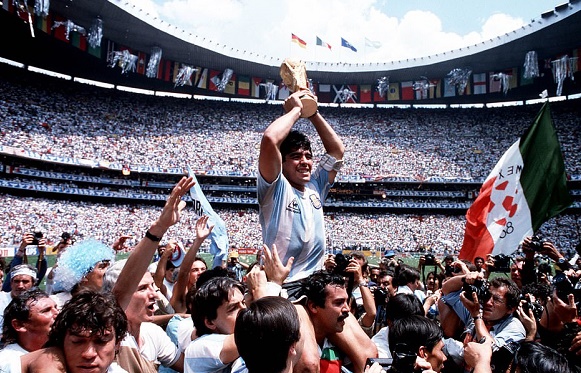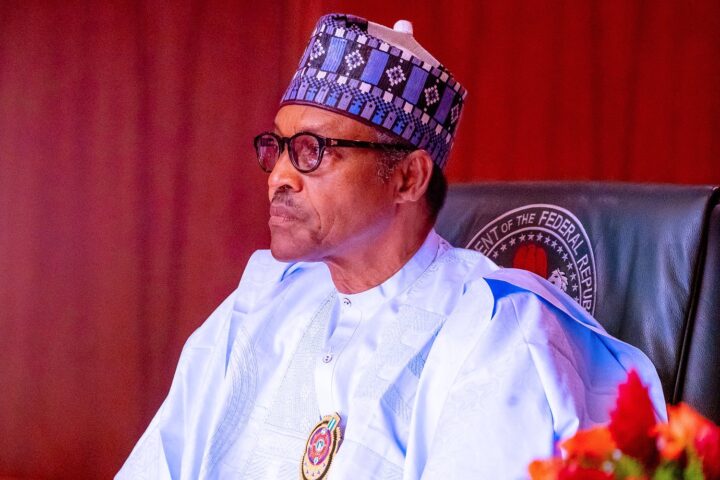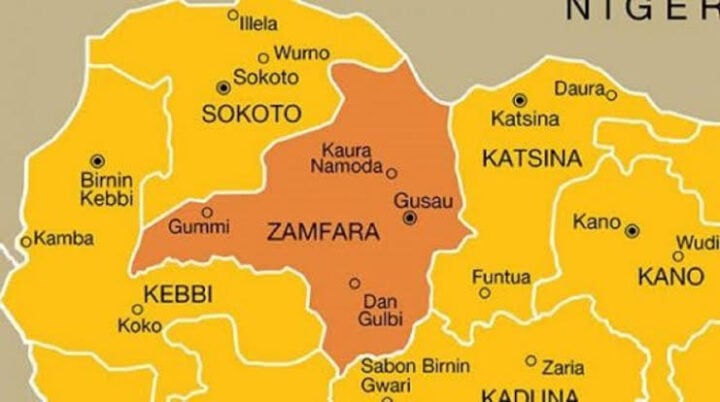OBITUARY: Maradona, Argentina's football icon who died a happy man -- but with one regret
There is no doubt in my mind that Diego Armando Maradona is the greatest football player of all time. I am not saying this because he is dead like many people are doing today. I am saying this based on facts as a football pundit.
What he did for Argentina and the city of Naples in Italy may never be matched in our lifetime. His reputation for turning underdogs into champions puts him head and shoulders above the rest.
It’s over a week since Maradona died yet it seems like today, as he is still being talked about passionately.
Warring parties in Argentina had to sheathe their swords in honour of “El Pibe de Oro” (The Golden Boy).
Advertisement
The Argentine superstar transcended football as millions of people across the world paid tribute to him. From the president of Argentina to Pope Francis, the football legend was adored.
In Argentina and Naples, the World Cup winner is being celebrated like they have done for nobody before. In short, he is been idolized.
“What is it about Maradona?” Is a question that a lot of young people are asking today.
Advertisement
Maradona was born into poverty in Buenos Aires, Argentina and despite his achievements later in life, he never forgot his background. He used his status to fight for the downtrodden; one of the reasons he was loved by the lower class.
He made his football debut at Argentinos Juniors in 1976 days before his 16th birthday, making him the youngest player in the Argentine league. It was obvious that he was miles apart from the rest of the players in the league.
Although he wasn’t a striker, he was the highest goal scorer five seasons in a row. In 1979, he won the junior World Cup as captain of Argentina.
He dominated the Argentine league before joining Barcelona in 1982 for a then world-record fee of 5 million pounds.
Advertisement
Barca had tried to sign him several times in the past with no success because the president of Argentina, who was a dictator, saw Maradona as a national treasure and held on to him.
At 21, Maradona was already famous across the world for his dazzling skills. In his first season at Barca, he won the Copa del Rey by beating arch-rivals, Real Madrid and later won the Spanish Super Cup.
In a game away to Real Madrid on June 26, 1983, the Argentine made history by being the first Barca player to get a standing ovation at the Santiago Bernabeu stadium. He scored a brilliant goal against arch-rivals Real Madrid and was hailed by opposition fans.
Despite the ovations he got in Spain, he was unhappy as he got into disputes several times with executives of the club. Maradona requested to leave for Italy.
Advertisement
Football in the past was a brutal sport, especially for skillful players. Unlike today, there was little protection for star players as defenders mostly went for the legs instead of the ball.
The Italian Serie A was not only the toughest league in the world; it was the roughest in Europe.
Advertisement
A lot of Maradona fans were worried that despite having a life-threatening injury in Spain, he decided to move to Italy, the epicenter of hard tackling defenders.
Before I continue with his time in Italy, let me state that Maradona was the most fouled player across three World Cups, with his total from 1986 remaining the highest single figure from one World Cup.
Advertisement
In Spain 82, he was fouled 36 times despite playing only four games. In Mexico 86 and Italia 90, he was fouled 53 and 50 times respectively.
Back to Italy: the best players in the world plied their trade there. Maldini, Klinsmann, Roberto Baggio, Michel Platini, Zico, Marco van Basten, Dunga, Baresi, Lother Matthaus, Ruud Gullit and other greats were in Italy in the 80s.
Advertisement
The league was dominated by AC Milan, Inter Milan, Juventus and Roma all from northern Italy.
Of all teams in the league, Maradona joined Napoli, a club in southern Italy despite being chased by the big clubs. Football pundits thought Maradona had gone mad for joining a club that used to finish bottom of the league.
Well, it was one of those things that made him different from other great players. While they sign for the powerhouses of European football, Maradona joined lowly Napoli that suffered racist abuse from their northern neighbours.
They were called ‘Africans’ whenever they travelled to the northern parts of Italy to play.
Maradona understood from an early age growing up in Buenos Aires what it meant to be discriminated against by the capital’s upper classes.
As soon as he arrived in Naples, he instantly identified with the racism suffered by the southern Italian club at the hands of the North.
That was all the motivation he needed as someone who loved challenges. Maradona as captain lifted Napoli from bottom of the league to the summit.
His heroics in taking the club to the top went beyond the football field as he is credited with installing new pride to a city.
Before the club from southern Italy won their first league title in 1987, Maradona achieved what many termed ‘impossible’ with Argentina. He captained a team no one gave a chance and won the Mexico 86 World Cup.
When a person with Maradona’s ability decides to rise to the occasion, winning becomes the only option.
His ball control, vision, passing and dribbling skills combined with his small stature gave him a low centre of gravity allowing him to dribble past multiple opposing players on a run. His presence and leadership on the field had a great effect on his team’s general performance.
In Mexico 86, he scored five goals and assisted five. Argentina scored 14 goals and Maradona was involved in 10. He was also part of the build-up for the other four goals.
The game against England in the quarter-finals stood out as that was the first time the two teams met after the Falkland war in 1982. The build-up to that game was all about the Falkland war between Britain and Argentina. In fact, fans of Argentina and England clashed before that game making the atmosphere more tensed.
In that match, Maradona scored a goal with his hand which he later called “Hand of God” and five minutes later, scored a goal by sprinting from half of the pitch with the ball on his left foot while dribbling five players including the goalkeeper, in the process.
At the end of the game which ended 2-1 in favour of Argentina, Maradona dedicated the victory to the young men of Argentina who died in the war.
For Argentines back home, that victory was enough. Defeating England was sweet revenge. Maradona became a hero. On top of that, they won the World Cup.
Gary Lineker who played for England that day, said “Maradona’s goal is probably the only time in my career that I felt like I ought to applaud for the opposition. It was such a great goal.
“It wasn’t just the fact of what he did, but that he did it in such difficult conditions and in such a big game. The weather was hot and the pitch was awful; it had had a lot of problems and had just been relayed with lots of very small pieces of turf. Every time you put your foot down with any weight and turned, the pitch would slide away from you. How he managed to do what he did on that particular surface beggars belief.”
Maradona became the first and only player in history to win the award for the best player of the World Cup unanimously. In other words, every official voted Maradona as the player of the tournament.
He went on to lead Napoli to heights they never dreamed of. After their first league title in 1987, they won the UEFA Cup in 1989 and a second league title in 1990.
In the 1990 World Cup hosted by Italy, something fascinating happened in the semi-finals when the host nation faced Maradona’s Argentina.
The game took place in the city of Naples where Maradona played for Napoli. Many of the Italians in Naples supported Argentina because of Maradona instead of Italy.
In a press conference before the game, Maradona told reporters that “The Neapolitans are being asked to be Italians for one night, while the other 364 days of the year they get called terroni (an Italian slur roughly translated as peasants).”
The Argentine while playing with an ankle injury throughout the tournament succeeded in leading his team to the final of another World Cup. Unfortunately, they lost due to a controversial penalty awarded to Germany in the closing minutes of the game.
Four years later, Maradona returned to the World Cup in USA. He scored a brilliant goal against Greece in his first game and set up two goals in his second game against the Super Eagles of Nigeria.
However, that was his last international game for Argentina as FIFA banned him for testing positive for using the banned drug ephedrine.
Afterwards, he continued to play in the Argentine domestic league until he retired in 1997.
Back in Italy, Napoli retired his number 10 jersey as soon as he left the club. Today, they have named their stadium after him.
There are many great footballers who have left their mark on the game. They have silverwares and scored many goals, some of them more than Maradona. But when it comes to the weight of success, turning underdogs into champions and providing emotions that would last for a lifetime, Maradona is head and shoulders above the rest. He is peerless.
Yusuf Mohammed is a journalist based in Lagos. You can reach him on Twitter: @yusufwrites
Add a comment







